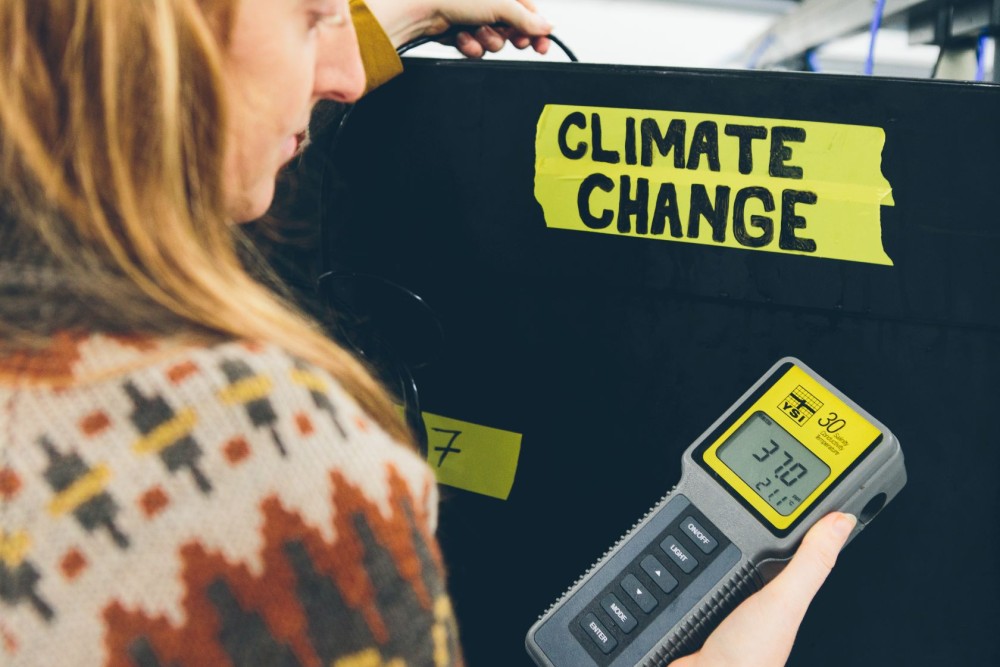Climate change is one of the biggest challenges of our time, with the ocean at the heart of it. The ocean acts as the ultimate climate regulator by absorbing about 90% of the excess heat from greenhouse gas warming and annually about 25% of all man-made CO2 emissions. It also bears the consequences of this buffering and of the changing climate. Ocean acidification, marine heat waves, deoxygenation and rising sea levels are causing stress to our marine ecosystems and coastal areas.
As a hotspot for coastal climate change, the shallow and heavily used North Sea requires our increased attention. The coastal zone has a substantial value as a place for recuperation and tourism, which will be affected by a changing climate. Likewise, the ocean is increasingly being promoted in terms of climate solutions. Offshore renewable energy projects, the rise of the marine restoration economy and blue carbon initiatives receive increasing attention as potential solutions to achieving our climate objectives. They also give new impetus to the maritime knowledge economy. Building on its strengths as a marine scientific institute, VLIZ research contributes to the understanding and underpinning of solutions with regard to the climate-ocean-biodiversity nexus.
Contact: Dr. Peter Landschützer (peter.landschutzer@vliz.be)

Research groups linked to Coastal Climate Change
1. Maritime Society and History: We analyze interactions between humans and the sea from an economic, sociologic, and historic point of view. The goal is to improve our understanding of how risks and opportunities posed by the sea shaped coastal societies. Our research centers around three main topics, sources and approaches.
2. Past, Present and Future Marine Climate Change: Focus is on the uptake and storage of carbon dioxide and other greenhouse gases at the Belgian coast, the European shelf and the global ocean in support of regional and global carbon budget analyses. With that goal we develop new techniques based on machine learning tools to exploit and upscale measurements.
3. Seascapes Past and Future: The research group 'Seascapes Past and Future' is expanding geoarchaeological research in the North Sea in close cooperation with domestic and foreign research institutes. For efficient exploration of the seabed and (shallow) subsurface, the team is making maximum use of VLIZ's extensive infrastructure including the smart deployment of autonomous vessels.
Recent and relevant publications
· Gruber, N., Bakker, D.C.E., DeVries, T. Gregor, L., Hauck, J., Landschützer, P. McKinley, G. and Müller, J.D. : Trends and variability in the ocean carbon sink. Nature Reviews Earth and Environment., 2023
· Missiaen, T., Fitch, S., Muru, M., Harding, R., Fraser, A., De Clercq, M., Garcia-Moreno, D., Versteeg, W., Busschers, F., van Heteren, S., Hijma, M., Reichart, G.-J., Gaffney, V. 2021. Targeting the Mesolithic: Interdisciplinary approaches to archaeological prospecting in the Brown Bank Area, southern North Sea. Quat. Int. 584, 141–151.
· Feys, T. (2020). From queen of seaside resorts to expulsion corridor: monitoring the entry, stay, and expulsion of foreigners in Ostend (1838–1914). Journal of Tourism History 12(3): 213-236.
